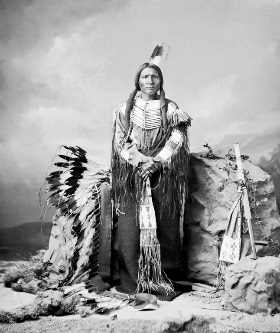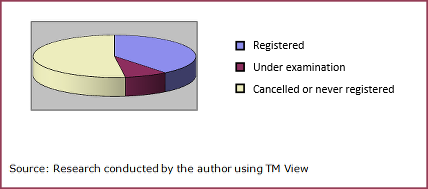Non-indigenous corporations profiting by showing or marketing their products as being associated with or originating from indigenous communities can be offensive, exploitative of indigenous cultures and be misleading for consumers. This article highlights the urgent need for efficient protection of TCE and how the trade mark registration system may provide an avenue for such protection.
Need for protection of TCE
Historically, Indigenous communities have sought to rely on common law and consumer protection legislation to try and protect their TCE. For instance, in the Crazy Horse Malt Liquor case (Frank Pommersheim, The Crazy Horse Malt Liquor Case: From Tradition to Modernity and Halfway Back, South Dakota Law Review, Vol 57, p 42, 2012), the descendants of the Lakota leader Crazy Horse sued Hornell Brewing Co for using the leader’s name in the marketing of Crazy Horse malt liquor.
The tribe pursued a defamation lawsuit for unauthorised use of their heritage as part of a campaign with an offensive message about the tribe.


Similarly, in the legendary Navajo Nation v Urban Outfitters case (Case 1:12-cv-00195), the Navajo Nation filed a lawsuit against Urban Outfitters for the use of their name for whiskey flask case called "Navajo fabric wrapped whiskey flask".
The tribe relied on claims of “false association or affiliation with the Navajo Nation and to unfairly trade off of the fame, reputation, and goodwill of the Navajo Nation’s name and trademarks”.
As a result Urban Outfitters changed the name of the product to "Printed fabric wrapped whiskey flask". However, the low level of protection available to indigenous communities can be seen from this case, as the federal judge dismissed two of the counts against Urban Outfitters because the Navajo trade mark is too generic to be considered under the Federal Trademark Dilution Act. These cases demonstrate the need for efficient and successful protection of TCE.
Using the trade mark system to protect TCE
Indigenous peoples may seek to register their names, signs or symbols to prevent their unauthorised use by third parties.
Some indigenous communities have already utilized the trade marks system to protect their TCE. For instance, in Canada, the First Nations peoples have registered several ancient rock painting images to prevent their unauthorised reproduction and commodification.
Extent of use of the trade mark systems
The trade mark system appears to be an under-utilized option for protecting and enforcing TCE. A search conducted on TM View for the word "indigenous" reveals 140 results where the word indigenous was included in the trade mark (either word mark or figurative mark). These trade marks include 2008 NORTH AMERICAN INDIGENOUS GAMES owned by Cowichan 2008 North American Indigenous Games Society (the Cowichan Tribes First Nation located in and around Duncan, British Columbia) and FEDERATION OF INDIGENOUS PEOPLES SANTIAGO CITY owned by FEDERATION OF INDIGENOUS PEOPLES.
At first glance, it seems quite a large number of trade marks owned by indigenous people. However on closer scrutiny, it becomes clear that 67 out of these 140 trademarks are either under examination or registered whereas 73 of them are not protected any more. The graph shows the results of TM View according to the above categories.

Further research is required to study and understand the reasons for the large number of cancellations. One reason may be that several countries require commercial use to maintain a registration and indigenous communities may not be able to satisfy this requirement.
A further problem is that several trade marks which contain the word "indigenous" are owned by companies which do not necessarily belong to indigenous people.
If indigenous communities are to be able to rely on the trade mark protection system, some amendments will likely be required. One of the amendments might be that the word "indigenous" would only be allowed to be registered by an individual/group/company which can prove its indigenous roots.
This might be an interesting direction towards the protection of TCE but it raises the issue of existing trade mark owners who have tribal names as marks of their goods. For further information on this point, please read the Field Note on 'Authentic Indigenous' in this issue which provides an example of how the trade mark registration system may be utilized to protect TCE.
Dr Karsay Enikö is a Partner at SBGK in Hungary and a member of the MARQUES IP Outer Borders Team
 Issue 069
Issue 069
 Issue 069
Issue 069